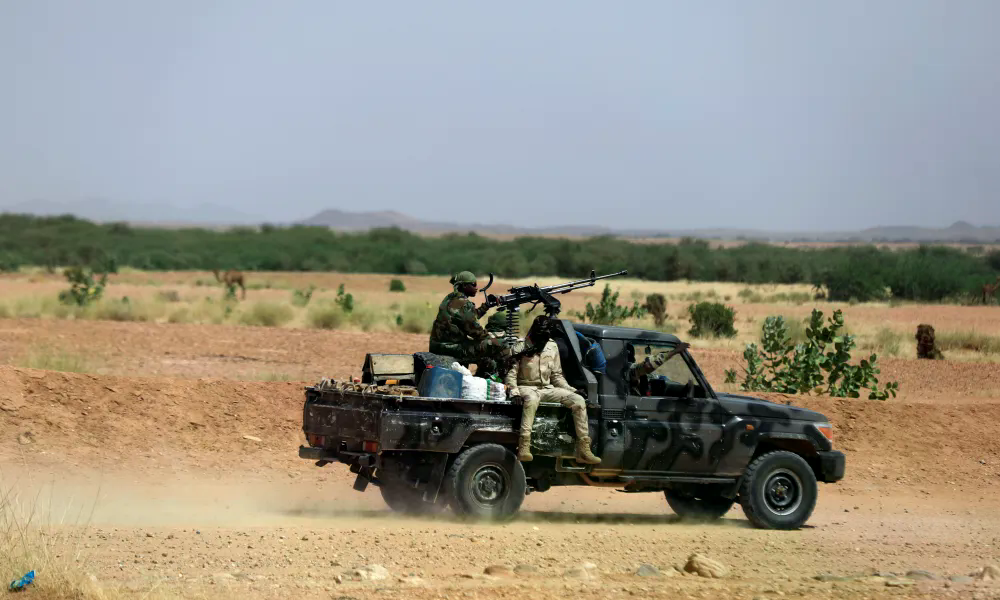
Nigeria has expressed willingness to accept assistance from the United States in combating armed groups, provided that its territorial integrity is respected. This statement comes after U.S. President Donald Trump threatened military action in Nigeria over what he claimed was the persecution of Christians in the country.
In a social media post on Saturday, Trump stated that he had instructed the U.S. Department of Defense to prepare for potential “fast” military action in Nigeria if the country fails to address the “killing of Christians.” In response, Kimiebi Imomotimi Ebienfa, a spokesman for Nigeria’s Foreign Affairs Ministry, addressed the allegations during an interview with Al Jazeera on Sunday.
“We are not proud of the security situation that we are passing through, but to go with the narrative that only Christians are targeted, no, it is not true. There is no Christian genocide in Nigeria,” Ebienfa said. He emphasized that while killings have occurred in Nigeria, they are not limited to Christians alone.
Regarding accusations that the Nigerian government allows these killings to occur, Ebienfa clarified: “The killings are not sanctioned by the Nigerian government. The Nigerian government is seriously against that. The killing of any Nigerian in any part of the country is a loss to the country.” He attributed the violence to terrorist groups such as Boko Haram and other al-Qaeda and ISIL-affiliated organizations.
A spokesperson for Nigeria’s presidency, Daniel Bwala, told Reuters on Sunday that the country would “welcome U.S. assistance as long as it recognizes our territorial integrity.” He added that he expects positive outcomes from future discussions between the two leaders on their shared efforts to combat terrorism.
Trump had previously stated that the U.S. would immediately cut off all aid to Nigeria if the government continues to allow the killing of Christians. In contrast, Nigerian President Bola Tinubu has denied claims of religious intolerance and highlighted his administration’s engagement with both Christian and Muslim leaders to address security challenges affecting all citizens.
“Since 2023, our administration has maintained an open and active engagement with Christian and Muslim leaders alike and continues to address security challenges which affect citizens across faiths and regions,” Tinubu stated. He rejected the characterization of Nigeria as religiously intolerant, emphasizing the government’s efforts to protect freedom of religion and beliefs for all Nigerians.
Nigeria, home to more than 200 million people, is divided between a largely Muslim north and a predominantly Christian south. Armed conflicts, primarily centered in the northeast, have persisted for over 15 years. Analysts note that while Christians have been victims, the majority of those killed have been Muslims.
Human rights organizations have called on the Nigerian government to take stronger measures to address unrest caused by groups like Boko Haram. However, experts argue that claims of a “Christian genocide” are inaccurate and overly simplistic.
Bulama Bukarti, a Nigerian humanitarian lawyer and conflict analyst, told Al Jazeera that there is no evidence of a Christian genocide in Nigeria. He described the narrative as a “dangerous far-right story” being amplified by Trump, warning that it could increase instability in the country.
Ebenezer Obadare, a senior fellow at the Council on Foreign Relations, agreed, stating that the Trump administration should collaborate with Nigerian authorities to tackle the common threat posed by armed groups. He emphasized the need for military support but warned against direct intervention, which he said would be counterproductive.
“The wrong thing to do is to invade Nigeria and override the authority of the Nigerian government,” Obadare said. “This is precisely the moment when Nigeria needs assistance, especially military assistance.”


